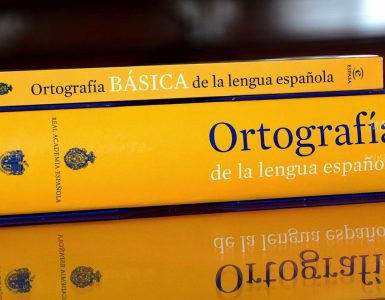We all have a woman, girl or girl we love and we see her in a different light to other girls. Saying princess in Spanish is a nice way to express it, since it not only refers to a royal person but also to the fact that, for us, she is the apple of our eyes. In this article, I will discuss the different ways to say princess in Spanish, whether we are talking about a member of the royal family or a woman in a romantic way.
Princesa – Princess
Although this word comes from the French princess, its origin goes back to Latin. The Latin term princeps or principis means the first or the principal. In this sense, princess is the one who, by marrying a prince, has sovereignty over a principality; it also refers to the daughter of the king, an immediate successor to the kingdom.
Hence sovereign and successor become synonyms of princess. This is the meaning if we are referring to a monarchy, but as many of us already know, this term is also used romantically and affectionately towards women in Spanish slang.
This way of saying princess in Spanish is usually said to girls, both by their parents and by other loved ones in a loving way. Although it is also often said between couples, as a compliment because a prince is nothing without his princess and it is also a way of expressing support for your partner.
Realeza – Royalty
As expected, the word royalty is directly related to grandeur and opulence. It means “grandeur proper to a monarch” and comes from the word real, which comes from the Latin term regalis (relating to the king), together with the suffix -eza. It is also the proper name given to any monarch in printed and written media.
Soberana – Sovereign
It comes from the Latin superanus, which means “one who has authority over others”. Its components are sober, meaning above or more, together with the suffix -ano, denoting belonging, origin or relationship, it is more than clear that it refers to monarchs, who have authority over others and come from the royalty. Like realeza, it is a formal term used in the media and not to refer to other people.
Excelencia – Excellency
It is another diplomatic way of referring to a princess in Spanish without directly mentioning their title of nobility. Excelencia is the name given out of respect and courtesy to certain people because of their status, employment or social position. In Spain, it was used to refer to the nobles who were part of the Grandeza de España (a noble hierarchy), women were also referred to in this way, including the queen, princesses and ladies of royalty.
Today, su Excelencia (your Excellency) is used to name judges, diplomats and other people in positions of authority. A judge in court is called su excelencia or su señoría (your Lordship).
It is not used orally and became obsolete many years ago, so saying it may seem out of place and strange to the listener, unless they are in a court of law.
Alteza – Highness
Alteza comes from the word altus, which in Latin means servant or fed plus the suffix -eza. In this sense, this widely used term with which we address kings and their children is synonymous with elevation, sublimity and excellence. We can use this tone in an ironic or mocking way for a person who thinks he/she is greater than others, but never in the form of a compliment, because it can be offensive when used sarcastically.
Heredera – Heiress
Many parents affectionately call their daughters heiresses, not only because they will inherit their property when they pass away, but also to tell others that she is from them.
| Spanish | English |
|---|---|
| Mira, allá va mi heredera corriendo por el parque. | Look, there goes my heiress running through the park. |
Spanish speakers have a very good sense of humor, so even those who have pets often call them their heirs to let others know that they love them as if they were their children.
Sucesora – Successor
Like the word heredera, parents use it in the same way. It comes from the Latin verb succedere, which means “to go under” or “to go after”, together with the suffix -sor. It assumes the idea of succeeding or replacing, going under another and then taking its place. It is also used a lot to call children, but it is not a romantic term to call a couple.
Emperatriz – Empress
This term comes from the Latin imperatrix and is composed of the prefix in, which means inward, parare, which means to order or prepare and the suffix -triz, which denotes a feminine subject.
In this sense, it means “she who rules an empire” and even though it is not used daily in any way, there are many Latin American parents who have named their little girl this way. It is very common to see girls and women called Emperatriz, as it is also seen written in novels, stories and some texts.
Majestad – Majesty
It comes from the Latin term maiestas which is composed of magis which means great together with the suffix -tad. In this sense, it means “someone who is great”. Like alteza, it is also used ironically and mockingly to address someone with a superiority complex. Be careful on how you use this though, as it can be offensive depending on how it is said.
Reina – Queen
It comes from the feminine of rex in Latin, which is regina. It literally means queen and is a romantic and affectionate way of referring to our mother or wife, who is the queen of the house she lives in. It is also used to refer to a girlfriend, figuratively and affectionately, as well as in the diminutive to refer to our daughters as reinitas. In some countries like Colombia and Venezuela, it is very common to go shopping and, instead of being addressed by the shop assistant as señora or señorita, be called reina or mi reina.
Muñeca/Muñequita – Doll/Dolly
Although not associated with royalty, a doll is a symbol of perfection and absolute beauty. As is well known, princesses were flattered not only for their intelligence and lineage but also for their beauty. They were usually a symbol of beauty and a role model for the whole kingdom.
The term muñeca is used as reina, to express affection to a loved one. It is even used in informal situations where, in countries like Venezuela and Colombia, it is used to address someone affectionately whose name is not known to the speaker. Diminutives are also used to refer to romantic partners and our daughters, since it is precisely in these stages when their beauty seems perfect to us, just like that of a doll.
Final Thoughts
Princess is a word with a deep meaning, beyond a royal title. That is why it becomes a synonym for the thousand and one affectionate ways to call a woman, a girl and even our mother. I hope this article has helped you to know the synonyms and contexts in which princess is used in Spanish, as well as how to say it and to whom to say it to.










Add comment